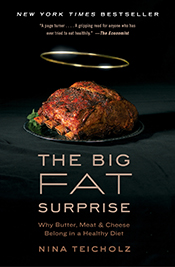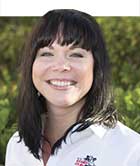 A new book has taken the nation by storm, and it bodes well for both the dairy industry and agriculture as a whole. The Big Fat Surprise is a 336-page book about how high, saturated fat foods may actually be good for us!
A new book has taken the nation by storm, and it bodes well for both the dairy industry and agriculture as a whole. The Big Fat Surprise is a 336-page book about how high, saturated fat foods may actually be good for us! For nearly five decades, we have been told to drink skim milk, eat lean meat and eat "low-fat" everything. But what if the very foods that we've been told to cut out of our diets are actually what sustain us throughout the day? What if whole milk, full fat yogurt and a sizzling steak sandwich actually give us the energy we need to avoid high carb snacks, sugary substitutes and salty crackers to hold us over between meals? If we ate more foods with well-rounded proteins and fats, in moderation of course, we may not have to resort to the processed snacks between meals.
Author Nina Teicholz takes this stance, discussing what she learned over her "nine year obsession" with getting to the bottom of our nation's health epidemic. She talks about how maybe the very thing we've been brainwashed to believe for nearly 50 years is actually what's causing our country's health issues. Ms. Teicholz also goes into detail regarding Ancel Keys' research and science, and how it may not be as sound as we have been led to believe.
The Big Fat Surprise is available in our Hoard's Dairyman bookstore at www.hoards.com/bookstore/bfat. It's worth a read not only for your family's benefit, but also for your dairy's benefit. We have a positive ally on our side in supporting the benefits of dairy products and beef; it's a prime opportunity for our industry to capitalize on. Pick up your copy; let us know what you think.

The author, Ali Enerson, was the special publications editor, responsible for books, plans, distribution of the e-newsletter and various internal communication pieces. She grew up on a 60-cow dairy in northwest Wisconsin, and is a graduate of University of Wisconsin–Madison with a degree in life sciences communications.








